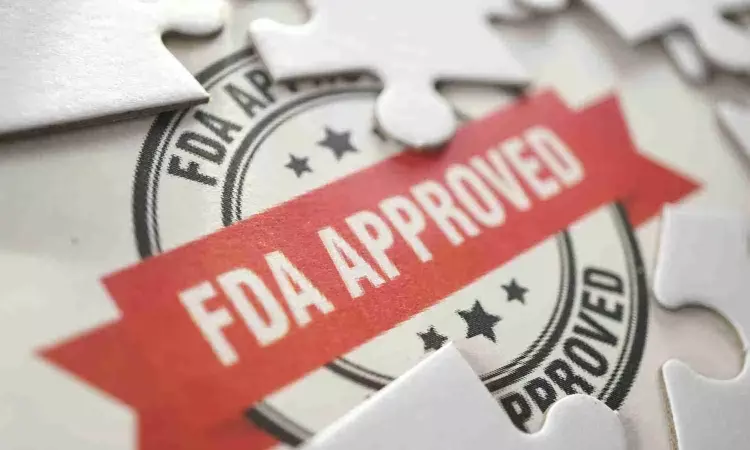- Home
- Medical news & Guidelines
- Anesthesiology
- Cardiology and CTVS
- Critical Care
- Dentistry
- Dermatology
- Diabetes and Endocrinology
- ENT
- Gastroenterology
- Medicine
- Nephrology
- Neurology
- Obstretics-Gynaecology
- Oncology
- Ophthalmology
- Orthopaedics
- Pediatrics-Neonatology
- Psychiatry
- Pulmonology
- Radiology
- Surgery
- Urology
- Laboratory Medicine
- Diet
- Nursing
- Paramedical
- Physiotherapy
- Health news
- Fact Check
- Bone Health Fact Check
- Brain Health Fact Check
- Cancer Related Fact Check
- Child Care Fact Check
- Dental and oral health fact check
- Diabetes and metabolic health fact check
- Diet and Nutrition Fact Check
- Eye and ENT Care Fact Check
- Fitness fact check
- Gut health fact check
- Heart health fact check
- Kidney health fact check
- Medical education fact check
- Men's health fact check
- Respiratory fact check
- Skin and hair care fact check
- Vaccine and Immunization fact check
- Women's health fact check
- AYUSH
- State News
- Andaman and Nicobar Islands
- Andhra Pradesh
- Arunachal Pradesh
- Assam
- Bihar
- Chandigarh
- Chattisgarh
- Dadra and Nagar Haveli
- Daman and Diu
- Delhi
- Goa
- Gujarat
- Haryana
- Himachal Pradesh
- Jammu & Kashmir
- Jharkhand
- Karnataka
- Kerala
- Ladakh
- Lakshadweep
- Madhya Pradesh
- Maharashtra
- Manipur
- Meghalaya
- Mizoram
- Nagaland
- Odisha
- Puducherry
- Punjab
- Rajasthan
- Sikkim
- Tamil Nadu
- Telangana
- Tripura
- Uttar Pradesh
- Uttrakhand
- West Bengal
- Medical Education
- Industry
AGENT drug-coated balloon receives FDA approval for treating in-stent restenosis

USA: The US Food and Drug Administration (FDA) has approved a paclitaxel-coated device, AGENT, for treating in-stent restenosis, making it the first coronary Drug-Coated Balloon (DCB) to receive approval in the US, Boston Scientific announced.
AGENT Drug-Coated Balloon is indicated to treat coronary in-stent restenosis (ISR) in patients with coronary artery disease (CAD). ISR is the narrowing or obstruction of a stented vessel by plaque or scar tissue. The AGENT DCB had been granted breakthrough device designation by the FDA in 2021.
The approval comes just about four months after researchers from the AGENT IDE trial reported an interim analysis of the first 480 patients that showed less target lesion failure (TLF) at 12 months with the DCB compared with uncoated balloon angioplasty (17.9% vs 28.7%). A relative halving of the risks of TLR and target-vessel MI drove the difference.
"With more than 100,000 patients treated globally to date in both clinical and commercial settings, we are very pleased to introduce this proven therapy as the first drug-coated coronary balloon in the U.S.," Lance Bates, president, Interventional Cardiology Therapies, Boston Scientific, said in the company's press release.
"The AGENT DCB addresses a critical unmet need by providing a dedicated treatment option for the challenging condition of ISR and we look forward to offering US physicians the opportunity to treat their patients with this novel device."
For patients with CAD, the stenting of coronary lesions continues to show a substantial improvement in quality of life, but ISR still encompasses 10% of percutaneous coronary interventions in the US Serving as an alternative to traditional therapies such as balloon angioplasty, additional layers of radiation or stenting, the AGENT DCB is a paclitaxel-coated balloon catheter that transfers a therapeutic dose of drug to the vessel wall to help prevent ISR reoccurrence.
After the FDA granted Breakthrough Device Designation for the technology in 2021, the approval was supported by positive results from the prospective, multicenter, randomized controlled AGENT IDE trial, which enrolled 600 patients at 40 U.S. sites.
In the interim analysis of the first 480 patients enrolled, the study met the primary endpoint of target lesion failure at 12 months, with the AGENT DCB demonstrating statistical superiority to uncoated balloon angioplasty (17.9% vs. 28.7%). Findings also included zero definite/probable cases of clotting within the stent (0.0% vs. 3.9%), a 49% risk reduction in heart attack at the target vessel (6.4% vs. 12.3%) and low adverse event rates at 12 months.
“The AGENT IDE trial demonstrated that the AGENT DCB is a safe and effective treatment option for coronary in-stent restenosis, even in a high-risk population, which included many individuals with multi-layer stents or diabetes,” said principal investigator Dr. Robert W. Yeh, section chief of interventional cardiology at the Beth Israel Deaconess Medical Center.
“Treating ISR has been challenging in the US with limited therapies available, and this new technology will help physicians reduce the risk of restenosis without radiation or introducing additional metal layers, which do not provide an adequate result for some patients.”
The AGENT DCB is available in Europe, parts of Asia Pacific and Latin America for treating patients with ISR and previously untreated small vessel coronary disease. Boston Scientific plans to launch the technology in the US in the coming months.
Dr Kamal Kant Kohli-MBBS, DTCD- a chest specialist with more than 30 years of practice and a flair for writing clinical articles, Dr Kamal Kant Kohli joined Medical Dialogues as a Chief Editor of Medical News. Besides writing articles, as an editor, he proofreads and verifies all the medical content published on Medical Dialogues including those coming from journals, studies,medical conferences,guidelines etc. Email: drkohli@medicaldialogues.in. Contact no. 011-43720751


